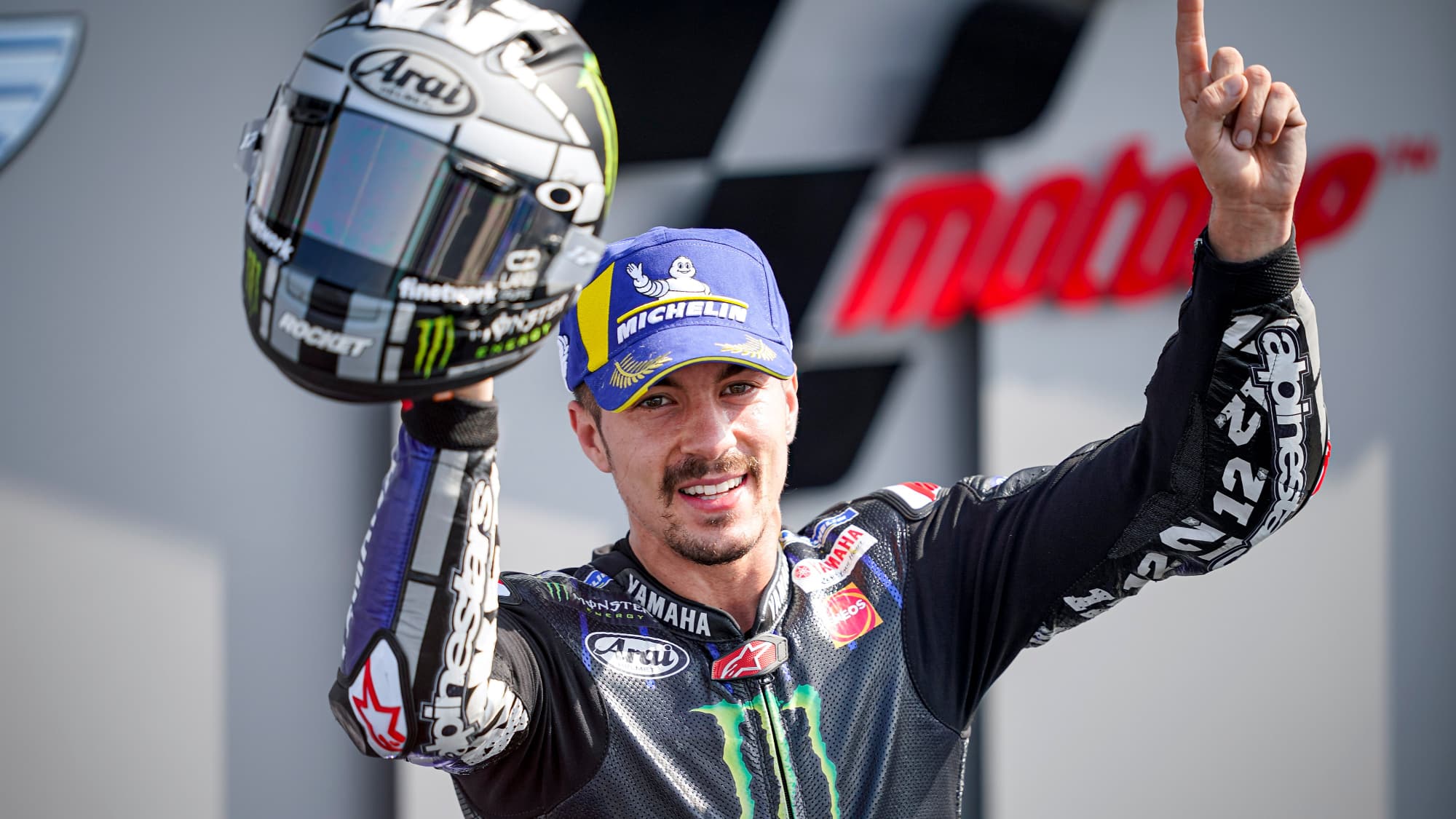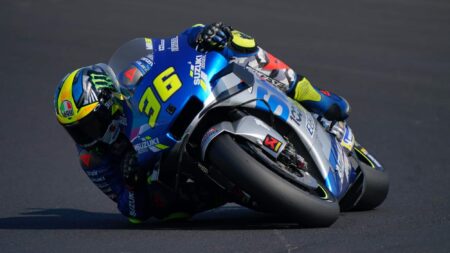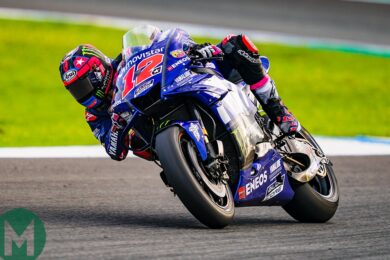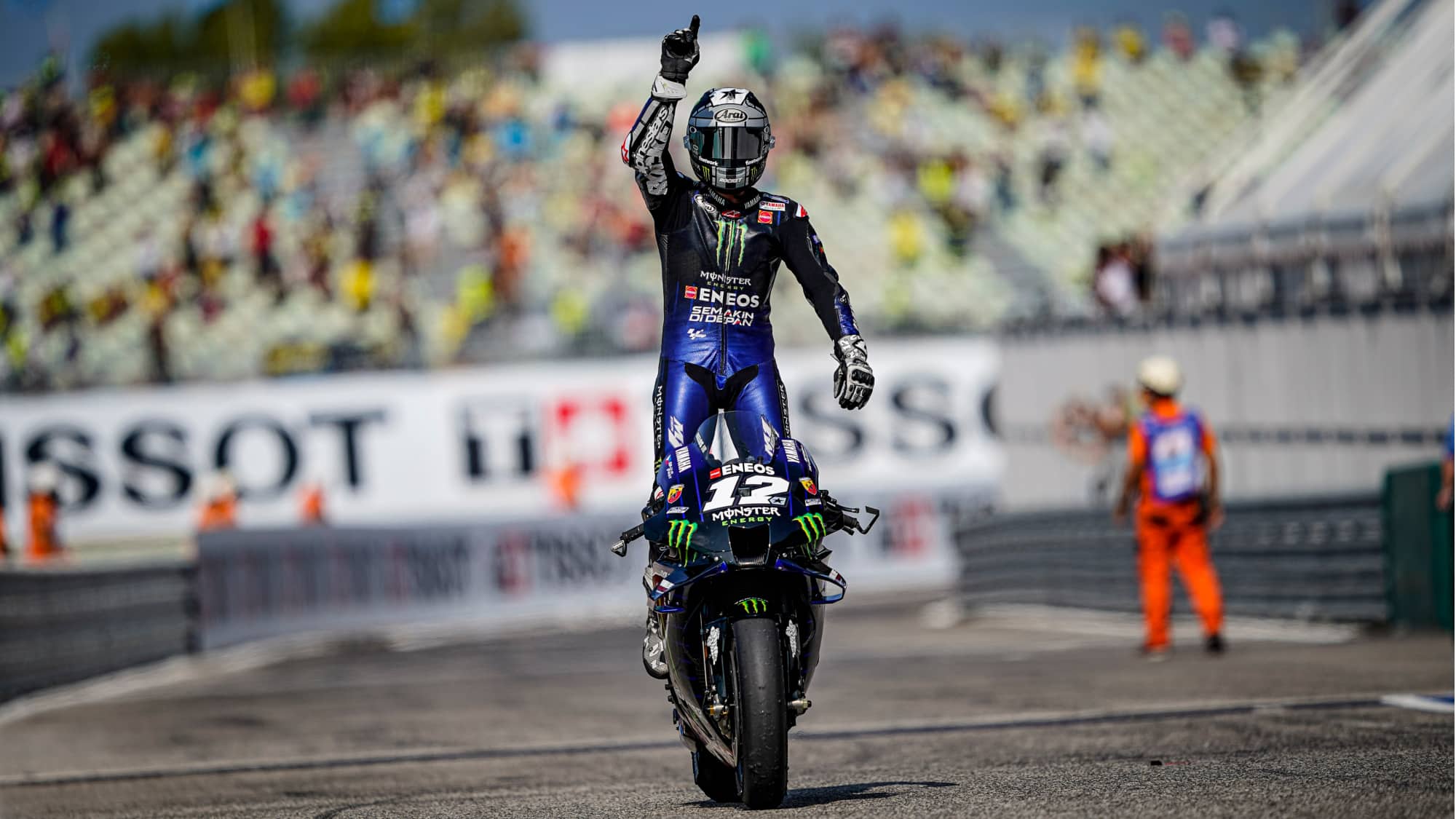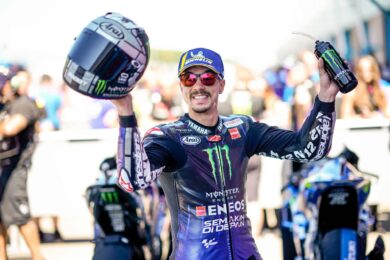“Pressure affects everyone,” says Checa. “It’s one thing to play when you bet zero, but when you bet a lot it’s completely different. Some people can manage this automatically and others find it more difficult. It can take many years to reach that clever mind in racing.
“When I raced 500s I liked to play too much with the set-up, then finally after three days of testing in Malaysia the lap time would come. But when you are at a race, with not much practice time, when you must prepare the bike well and test different tyres, it’s mentally very different.
“There is a procedure and you need to understand the way to prepare the race. Look at guys like [Valentino] Rossi and [Andrea] Dovizioso – often you see them running around in practice in 16th or 17th, because they are using the same tyres the whole session. Then on Sunday they are up front, so people say, ‘How is this possible?!’.
“The situation changes completely between testing and racing. For me, the pressure was the most difficult thing to manage, especially when you are playing for a championship. You can win one race, get another good result, but then race by race the pressure isn’t easy to manage, so you forget to enjoy riding the bike, then you don’t ride with the same freedom, with the same easy way you ride when you don’t play for a result.
“It takes a clever mind to control the pressure, the nerves and the tension that are created by the expectations of the race. Some people aren’t able to manage that when they are young.”
A few years ago Jorge Lorenzo suffered similar problems. At the start of the 2015 season he was lost, failing to score a single podium from the first three races, so his father went to work.
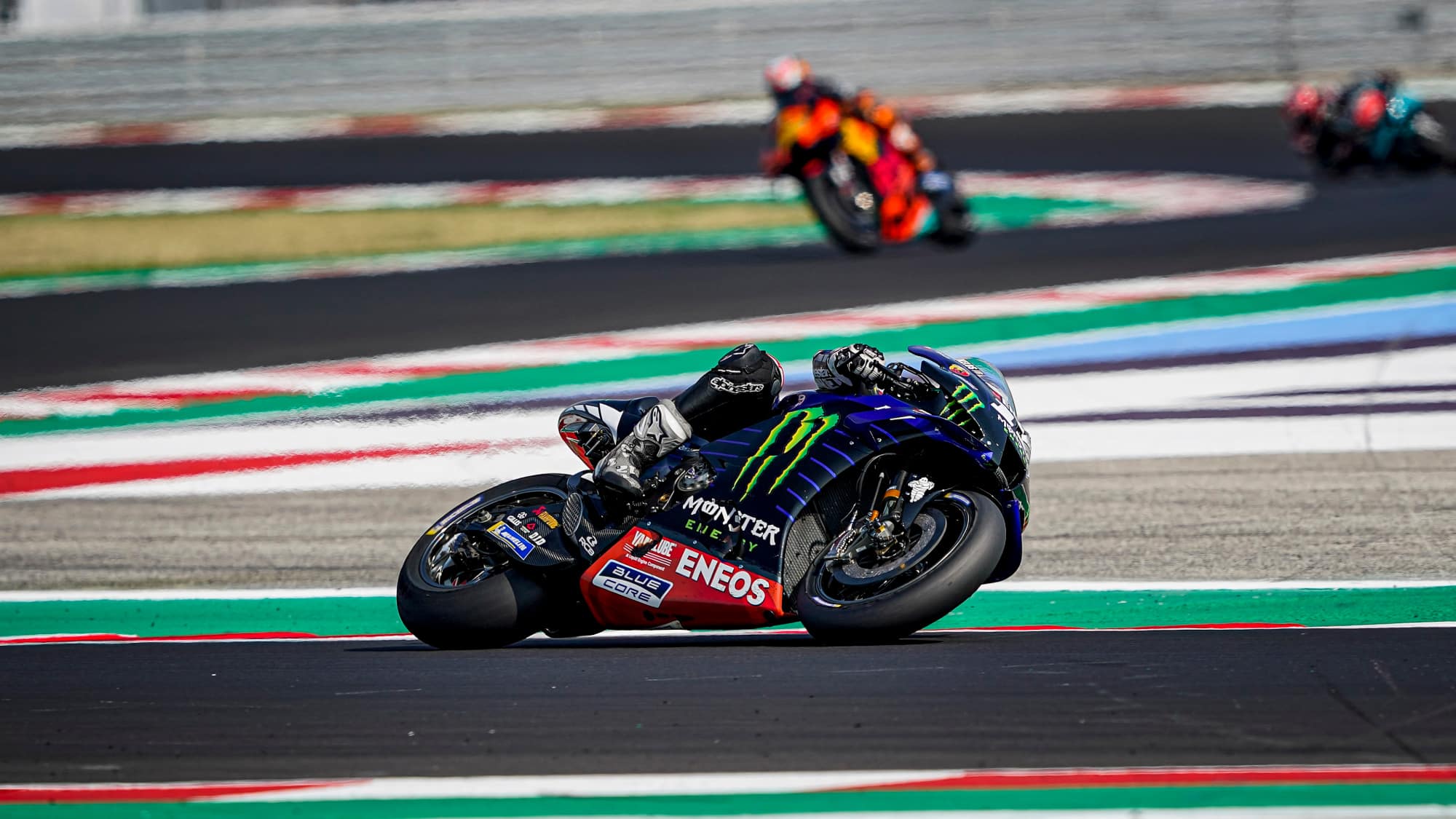
Viñales leads Pol Espargaro and Fabio Quartararo in Sunday’s final laps
Yamaha
“We worked on making him less nervous at the start and in the early laps,” says Chicho Lorenzo. “I would tell him to get into the mental situation of being on the grid. ‘OK, so where are you?’ ‘I’m on the grid.’ ‘OK, what’s making you nervous?’ ‘The race is about to start.’ ‘OK, so let’s analyse why.’ Then we worked on those problems to make him totally calm and concentrated’.”
Lorenzo Senior goes as far as using methods employed by Mossad, Israel’s controversial intelligence agency, trying to keep his son and other riders calm in the midst of chaos.
“Mossad train in simulators in high-stress situations, monitoring heart rates and teaching people to be at their limit while remaining calm, because the calmer you are, the stronger you are,” he adds. “Look at Valencia 2015: it was the most important race of Jorge’s life; he had to do everything perfectly, he couldn’t make a single mistake. So he had worked a lot on that from a mental point of view.”
Viñales has had so many Sunday disasters over the last few years, usually attributed to problems caused by a full fuel tank, Moto2 rubber, the wrong tyres and so on. No other rider has suffered such a litany of problems over such a long period. So surely there’s something else at work here because every rider on the grid has to start the race with a full fuel tank, deal with different grip levels following the Moto2 race and sometimes contend with problems caused by an incorrect tyre choice.
When I interviewed Viñales at the end of 2018 he was already looking for a sports psychiatrist who might help him keep a cooler head on race days. He did briefly work with someone in Qatar, which had some effect, but he’s never fully engaged with a professional to fix his problems.
